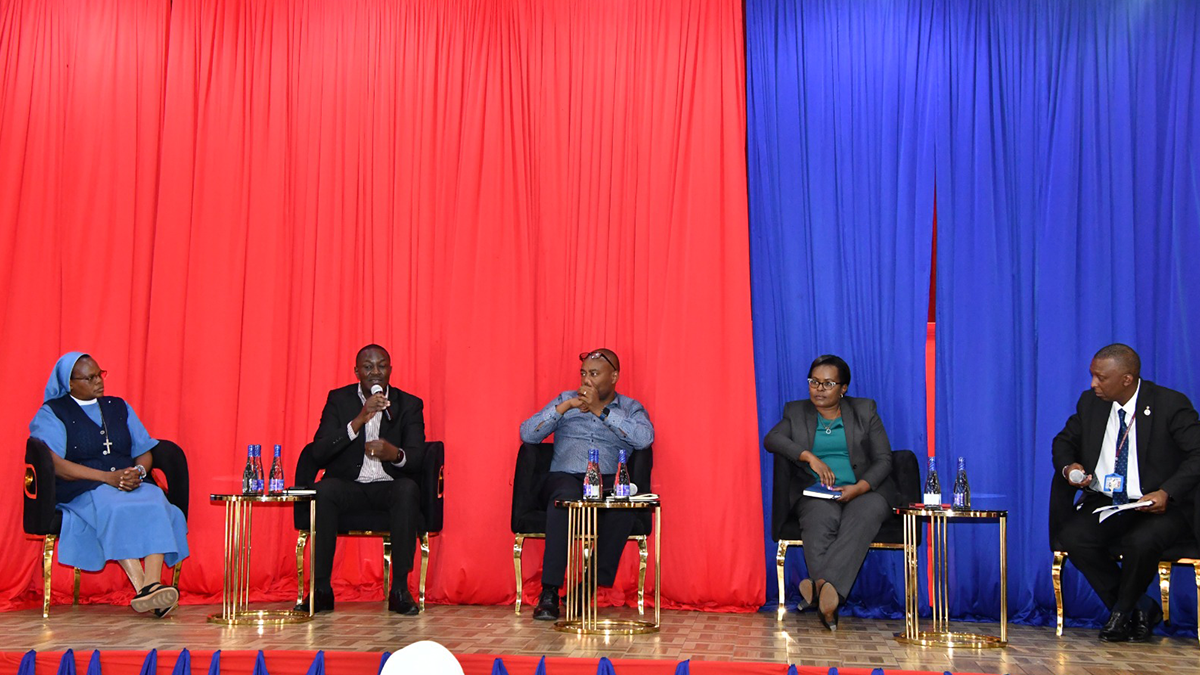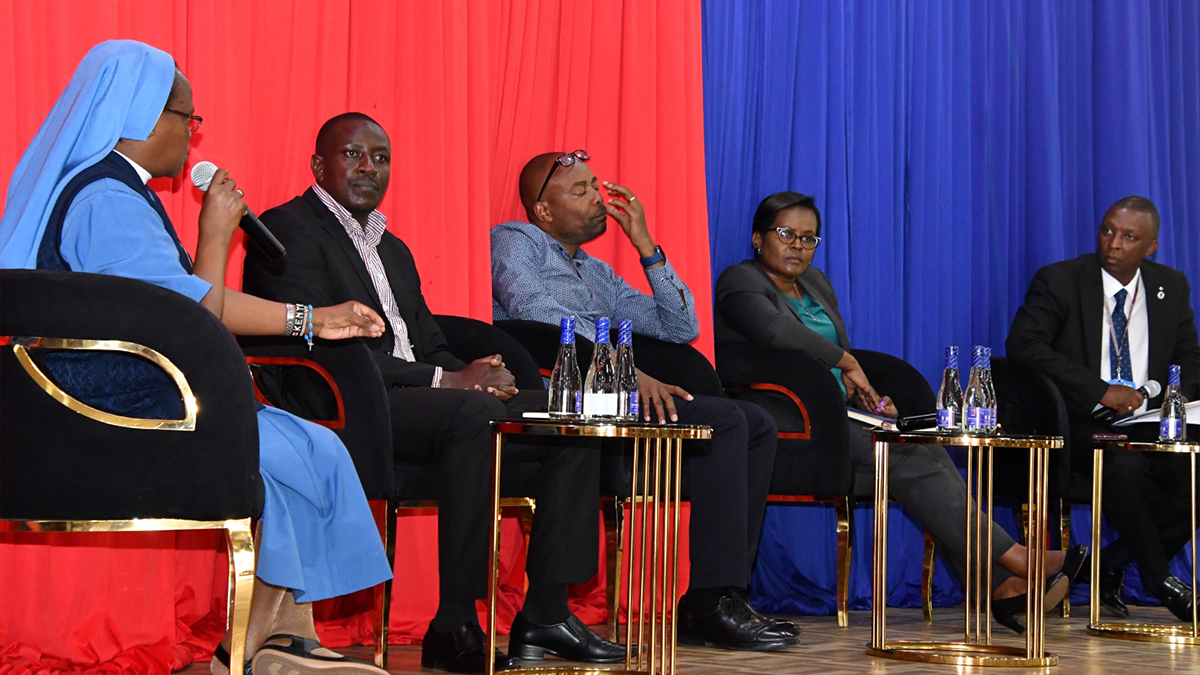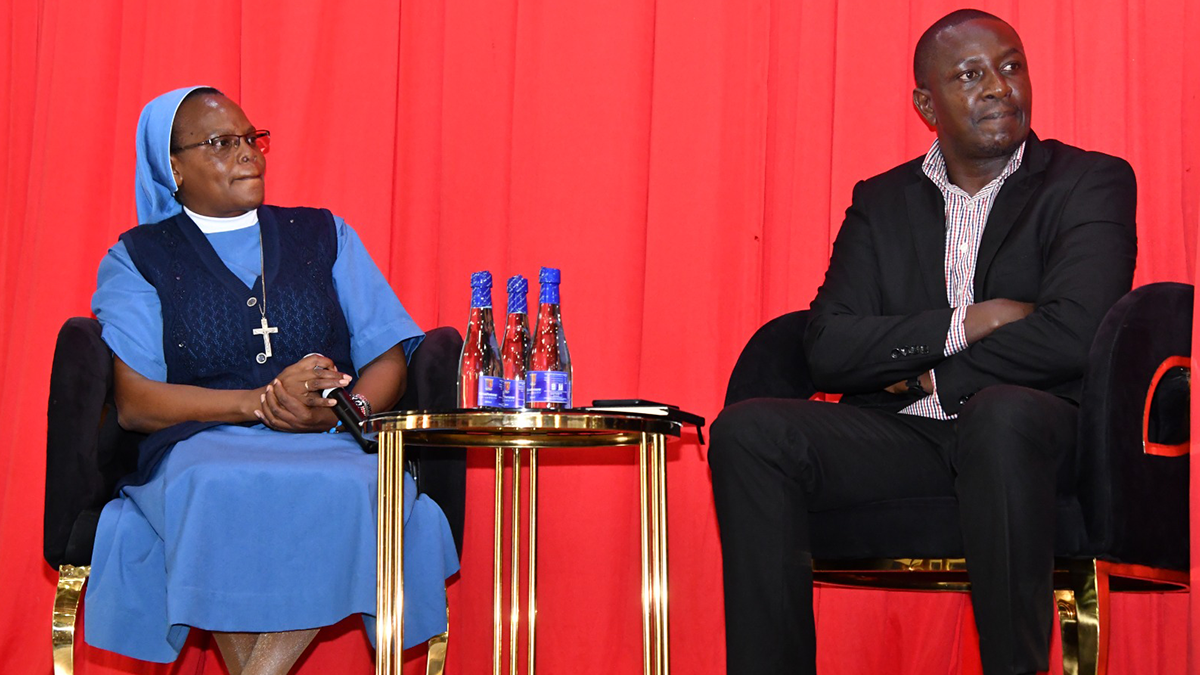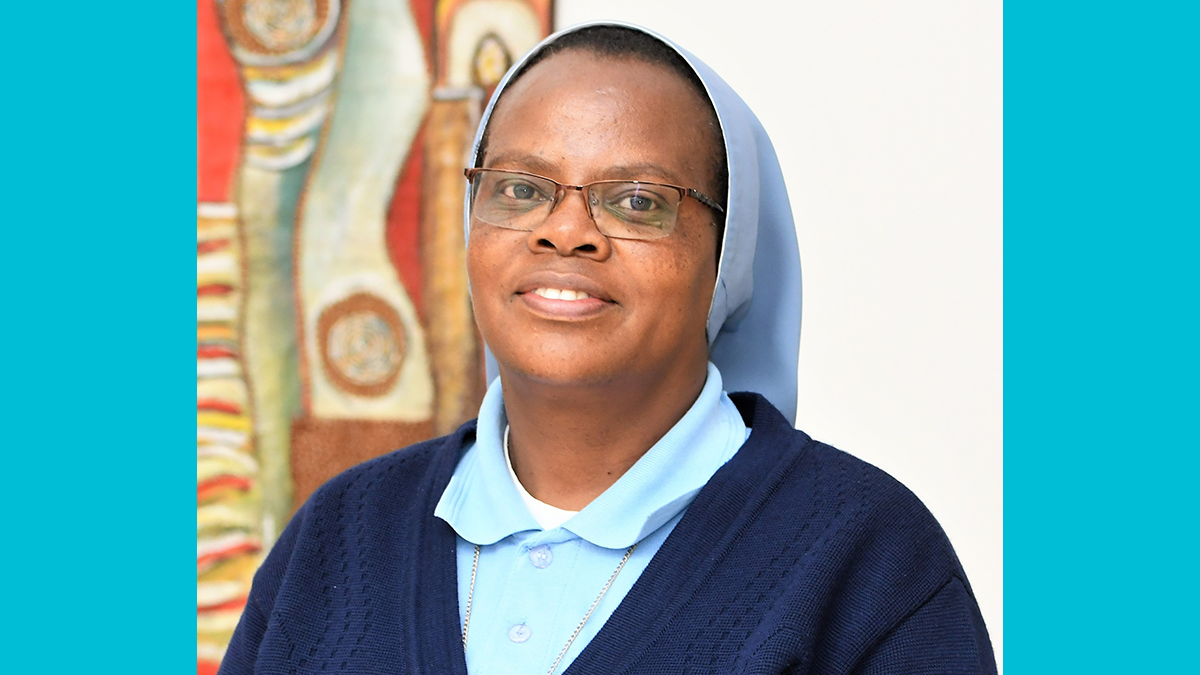In a world where social entrepreneurship is on the rise, the role of religious sisters in driving sustainable change often remains unsung—at the Strathmore University Annual MSME Conference and Expo, Sister Peris Muchiri, a dedicated member of the Little Daughters of Saint Joseph, shared insights into the transformative work of the Sisters Blended Value Project (SBVP). In this exclusive interview, Sister Peris shed light on the purpose of the SBVP, its impact on empowering sisters, and the importance of the recent Annual Strathmore MSME conference and expo.
Kindly introduce yourself and what you do.
I am Sister Peris Muchiri from the Little Daughters of Saint Joseph, an international congregation working across four continents. We are a missionary congregation working in various sectors to serve the most impoverished communities. I work as the manager of the Social Incubation Center, one of the pillars of SBVP at Strathmore University Business School. The project is funded by the Conrad N. Hilton Foundation and is implemented by Strathmore University Business School (SBS) in collaboration with the Association of Consecrated Women of Central and Eastern Africa (ACWECA). SBS recognized the need for the sisters to learn how to manage their social enterprises effectively and are now making a lasting difference in society by establishing sustainable social enterprises.
Can you take us through the impact of SBVP on sisters that have attended the programme?
Last year (2022), we trained 292 sisters from various congregations in Kenya, Tanzania, Uganda, and Zambia. The training in the Social Enterprise Programme (SEP) – Start-Up was designed to equip the sisters with essential skills for managing their social enterprise. Following this training, they were tasked with crafting business plans and presenting them to a panel of judges, who evaluated and scored their proposals. Out of the congregations that received training, we have awarded seed grants to 58 of them, and we are in the final stages of processing the remaining three. It’s important to note that the seed grants provided to those in the program were part of the budget generously allocated by the Conrad N. Hilton Foundation as a starting point for these incredible initiatives. This is where the support truly made a difference. While our grants were relatively modest, they served as vital seed funding. This initial financial support was a motivating force, allowing these sisters to take their first steps toward initiating their social enterprises. The impact was remarkable.
One illustrative example is in Tanzania, where the Missionary Sisters of Precious Blood manage a health center. With the small grant they received, they were able to transform their maternity ward and improve the overall quality of their facilities. The changes included enhancing the bedding, replacing outdated medical beds with new ones, and renovating the ward. The transformation was so substantial that we documented it. We have witnessed other sisters engaging in agribusiness, installing irrigation systems, and venturing into solar energy projects to pump water, among other endeavors; the impact of these seed grants is genuinely inspiring.
Why is sustainability a significant aspect of the SBVP?
Our motto is ‘Transforming Social Ministries into Sustainable Social Enterprises.’ This slogan already emphasizes our commitment to sustainability. When we talk about sustainability, we envision the long-term future of the social enterprises and their enduring impact on the lives of the people they serve. The concept of sustainability became even more pressing after the challenges posed by the COVID-19 pandemic. The pandemic exposed vulnerabilities, particularly for sisters relying heavily on donor funding. It prompted a shift in our perspective, turning adversity into opportunities. At this juncture, we realized the importance of striving for sustainability in Africa.
Before this programme, many congregations ran multiple projects within a complex, such as a school, a health center, and a zero-grazing project, without clearly understanding whether these initiatives were self-sustaining. Some projects may have been inadvertently undermining others. To address this, we introduced the concept of accountability.
Through our training, sisters learned the importance of record-keeping and other vital aspects of financial management. They can now assess whether their institutions can sustain themselves. For example, when they evaluate a school, they scrutinize its income, expenses, and overall performance to determine if it’s self-sustaining.
We’ve encouraged sisters to view each institution as a business entity, akin to an individual. As with an individual, you must ensure that what you take out is within what you put in. Social enterprises should strike a balance, with input and output aligning effectively. We aim to guide sisters toward achieving sustainability and making well-informed decisions to maintain a sustainable future.
Why is this conference so important to the SBVP?
The significance of the SBVP’s participation in this conference lies in its multifaceted approach to empowering sisters. This value-added project is actively engaged in capacity building, with a strategic focus on four pillars: Individual and institutional capacity building, research, fostering collaborative networks, and the prospect of establishing a social enterprise incubation center, which is currently undergoing the pilot phase. The program’s overarching mission is to ensure the sisters’ social enterprises’ sustainability by nurturing their innovative ideas and fostering partnerships with potential investors.
I was greatly impressed by the conference’s theme of sustainability and climate resilience, which resonated with me profoundly. It’s clear that to achieve sustainability, we must prioritize our responsibility to the planet. Neglecting our environmental impact may yield short-term profits but ultimately harms the Earth and ourselves. Our planet, often called “Mother Earth”, provides us with everything we need, from the air we breathe to the food we eat. Treating our planet carefully is essential, just as we would our mother.
The conference, from my perspective and that of the attending sisters, was a transformative experience. It offered a valuable platform for knowledge exchange and networking. We came together, shared ideas, and learned from one another. It was a moment of inspiration, sparking new ideas on addressing the challenges posed by climate change and working collectively toward a more sustainable future.”
In what ways did you provide support to the sisters attending this conference and expo, and what motivated you to deem this support necessary?
We took a proactive approach to support the sisters’ participation in the Conference and Expo by encouraging them to exhibit their work, showcasing their endeavors to the public. While sisters primarily focus on their mission and the people they serve, we recognize the value of sharing their work with the wider community. It was essential to convey the message that they are making a tangible impact and that people can support their efforts by making purchases that, in turn, contribute to helping those in need.
To facilitate their participation, we covered the expenses for their exhibition booths, including tents, tables, and chairs. We understood that many of these sisters had never been involved in such exhibitions, so we made it a point to bear these initial costs. However, the sisters took responsibility for the decorations and personal touches they wished to add to their exhibition spaces.
Once they were at the Conference and Expo, the sisters could engage with others who were working in similar fields or had related products. This experience encouraged them to think more about marketing, collaboration, and networking. It also prompted them to consider presentation aspects, such as having business cards, which were not typically part of their work as they were not primarily driven by profit or business.
Our intention was never to change the sisters into business-oriented individuals but to expose them to new ideas and foster innovation. The world is brimming with innovation and creativity, and we desired that the sisters to tap into this wealth of knowledge. We believe in expanding their horizons and encouraging them to learn from others, particularly in an environment where they could be exposed to diverse perspectives.
In essence, we aimed to connect the sisters with a broader audience and provide them with a platform for networking, collaboration, and learning. We wanted to show them that there is a vast landscape of innovation and creativity, and by stepping out of their convents, they can make meaningful connections and embrace fresh ideas. That’s why we brought them to the conference.
Share This Story, Choose Your Platform!
Your journey to business excellence starts here. Subscribe today and be at the forefront of innovation and leadership.












